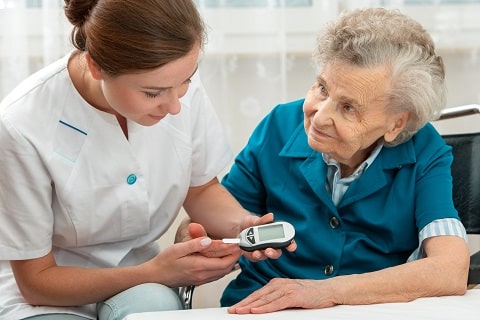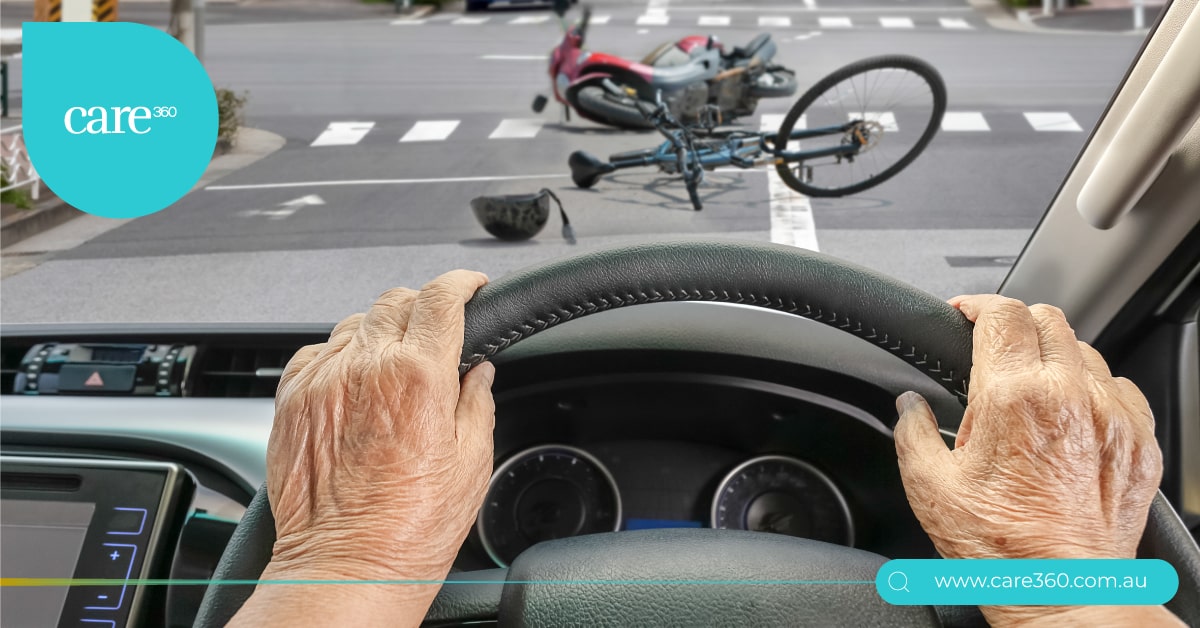
It is time to amplify the voice of the diabetes community to ensure this Inquiry focusses on the priorities that will change the numbers, change the future, and change lives. It’s an opportune time to engage in meaningful conversations about the causes, warning signals, and ramifications of diabetes.
Hence, let’s delve into these five early signs of diabetes in seniors, aimed at aiding in the prevention and management of this chronic ailment, affecting roughly 1.3 million Australians annually.
Understanding Diabetes in Seniors
First and foremost, let’s grasp the concept of diabetes in simple terms.
Some of the food we consume breaks down into glucose, a form of sugar that offers vital energy to our bodies. To effectively utilize glucose, our pancreas secretes insulin, a hormone responsible for regulating sugar levels and facilitating energy storage.

Individuals with diabetes either produce insufficient insulin to regulate glucose levels or are incapable of using the insulin they generate efficiently. This leads to an excess of glucose in their bloodstream, which is detrimental to their health.
It is estimated that diabetes affects about 25%-33% of elderly adults, with Type 2 diabetes being the most prevalent. Type 2 diabetes is largely preventable and is often attributed to poor dietary choices and inadequate physical activity.
This implies that making healthy decisions, such as consuming abundant fruits and vegetables and engaging in regular exercise, can significantly diminish your risk of developing this condition.
Five Warning Early Signs of Diabetes in Seniors
Prediabetes (the precursor to diabetes) can manifest with subtle symptoms that are easy to disregard. Therefore, it’s crucial to pay close attention to your day-to-day well-being as you age. The followings are the most addressable 5 Early Signs of Diabetes.
1. Increased Thirst and Urination
Excess glucose prompts our kidneys to go into overdrive, working diligently to eliminate it from our system. As a result, we might experience heightened thirst or an increased frequency of trips to the bathroom.
2. Blurred Vision
Elevated blood sugar levels (excess glucose) can strain the blood vessels in our eyes, potentially causing blurry vision. This blurriness may be transient but can lead to visual problems if addressed. This is one of the major Early Signs of Diabetes.
3. Profound Fatigue
Aging often brings a decrease in endurance, leading to feelings of fatigue. This can lead one to dismiss extreme fatigue as a typical aspect of the aging process. However, it’s not expected to feel persistently exhausted for days or weeks, even after a whole night’s rest.
Because diabetes and prediabetes hinder glucose processing (and, therefore, energy production), our bodies may feel weary regardless of our food intake or sleep duration.
4. Sluggish Wound Healing
Elevated blood sugar restricts blood circulation, particularly to the extremities, and adequate blood flow is critical for wound healing. Those with prediabetes may notice that minor cuts or abrasions take much longer to heal than usual or may experience recurring infections.
5. Weight Fluctuations
Seniors with prediabetes may shed a few kilograms without any deliberate effort as their bodies burn stored fat instead of relying on food-derived energy (glucose).
Conversely, extreme fatigue and low energy levels may heighten feelings of hunger, potentially leading to overeating. If you’ve experienced a significant, unusual weight fluctuation (either up or down), it’s advisable to consult a doctor.
Diabetes and prediabetes may manifest differently in everyone. You might encounter one or more of the symptoms outlined above or an entirely different set of symptoms.
If you detect any shifts in your health or unusual bodily sensations, it’s of utmost importance to seek guidance from your General Practitioner promptly.
Are you in need of extra support as you age? At Care360, we provide adaptable home care services for older Australians and individuals with disabilities. Click here to learn more and get in touch with us today!
For more information on Care360, please visit our website www.care360.com.au and to stay up-to-date with our latest news follow us on Facebook & Instagram.





